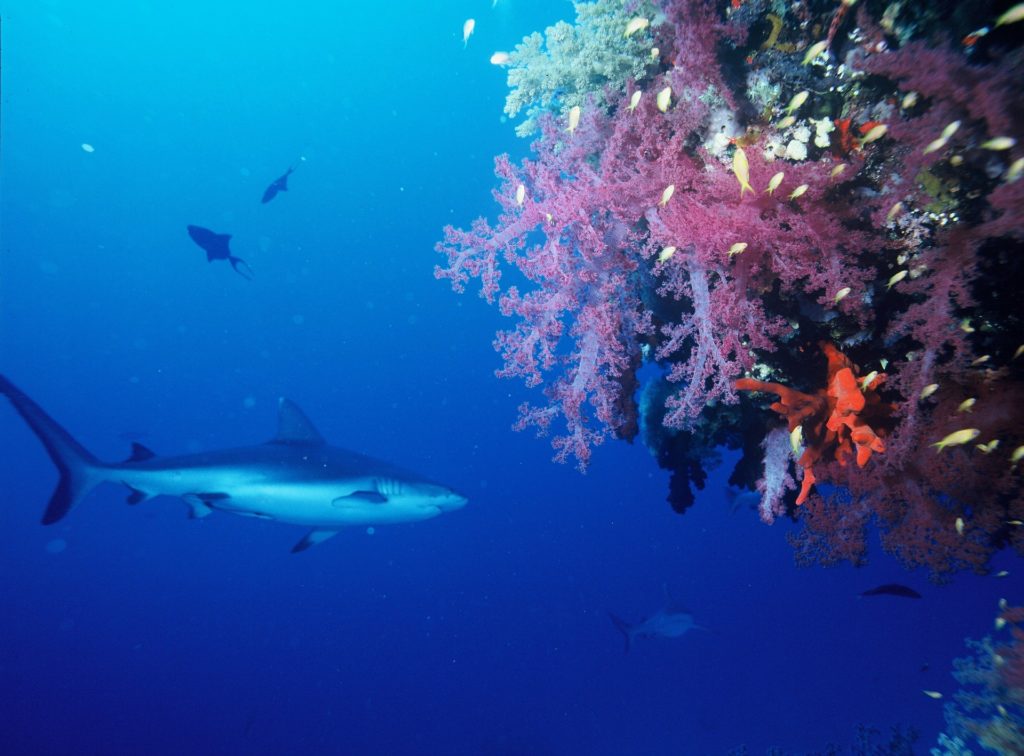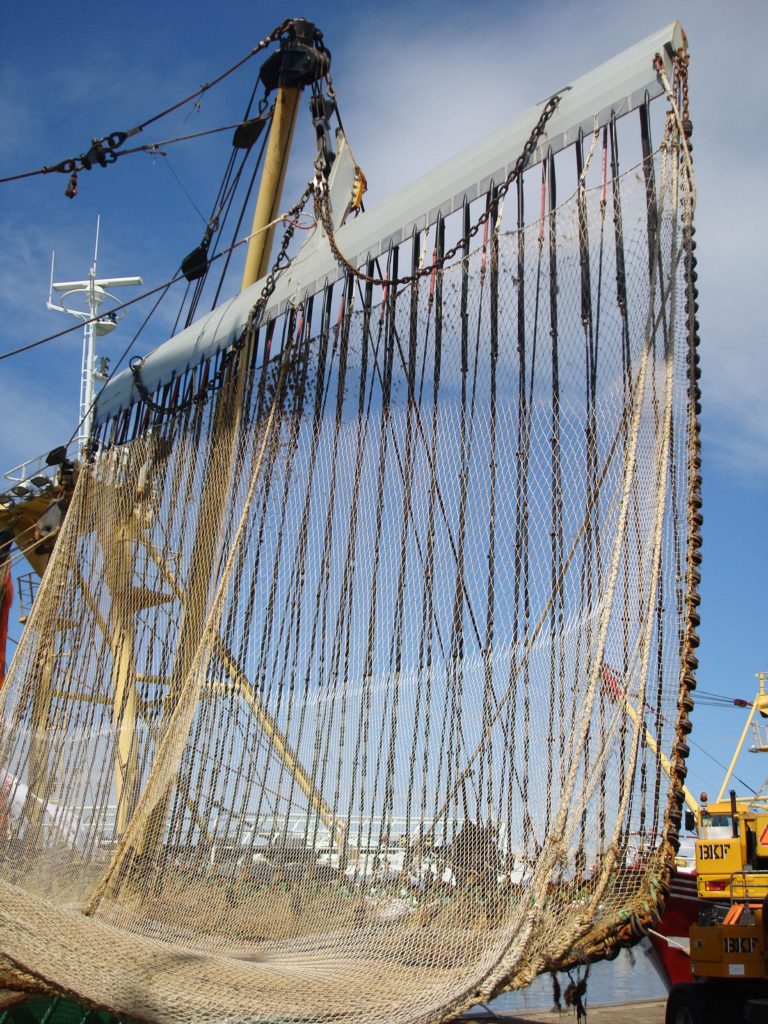Stranka za životinje poziva sve da se izjasne protiv katastrofalnog električnog ribolova
Komisija za ribarstvo pri Europskom parlamentu će 21. studenog glasati o kontroverznom električnom ribolovu. Europsko vijeće ministara želi ovaj novi način ribolova, prilikom kojeg se koristi struja, zabraniti. Ovo se ne sviđa nizozemskoj vladi koja lobira za legalizaciju električnog ribolova. Europarlamentarka iz Stranke za životinje Anja Hazekamp udružila se s znanstvenicima i NGO-ima kako bi to spriječili. Električni ribolov naime donosi neodgovorne rizike morskom svijetu i dovodi u opasnost našu budućnost. “Održivo (električno) ribarstvo je u ovom trenutku priča za malu djecu”, izjavila je Hazekamp. Hazekamp poziva svih da potpišu peticiju protiv električnog ribolova.

Kontroverzno električno ribarstvo je tehnika kojom se po dnu moru povlače žice po nabojem koje odašilju električne impulse. Ribe tada odskaču od dna i može ih se uhvatiti u mreže. Električni ribolov je u Europskoj uniji zapravo zabranjen, no do sada su lobisti uspijevali Europsku komisiju uvjeriti da je dozvoli do određene mjere.
Nizozemska sada želi da se električno ribarstvo dozvoli i da se uvrsti u uobičajenu metodu ribolova. Nizozemska vlada i ribarski lobi tvrde da je električno ribarstvo održivo i ne šteti ribama. Oni uspoređuju električni ribolov s klasičnim tehnikama pri čemu se zanemaruju nedostaci i negativi apekti zaboravljaju. Testiranje električnog ribolova pokazuje da ova metoda šteti ribama do mjere da dovodi i do smrti. Osim toga, ova metoda predstavlja rizik za morski ekosistem. Dugo izlaganje dna električnoj energiji može primjerice promijeniti kemijski sastav morskog dna, te naškoditi podvodnom životu. Mnogo je riba osjetljivo na struju: morski psi i raže koriste je prilikom lova. .
Uništavanje oceana
Drugi rizik je taj da – zbog lakših brodica koje omogućuje električno ribarstvo – područja koja su nekad bila netaknuta sada budu izlovljena. To onda znači da bi se naše vode još brže praznile i izlovile. Osim toga izašao je i izvještaj Ujedinjenih naroda koji upozorava da će, ako ovako nastavimo, do 2050 vode biti bez riba. U ovom izvještaju stručnjaci su zaključili da se ova katastrofa može izbjeći samo ako vlade prepolove subvencije za ribarice i da ribe dobiju više mjesta u oceanima, primjerice da se ustanove zaštićene zone. Tako bi ekosistemi i vrste riba kojima prijeti izumiranje dobile priliku da se obnove.

Nizozemski ribolov snosi odgovornost za strukturalni izlov u europskim vodama. Gotovo 88% vrsta se izlovljuje i oko 30% se vjerojatno ne može oporaviti. Stranka za životinje smatra da se sve destruktivne vrste ribolova (električni ili ne) mora zabraniti. Eventualne alternativne metode lova mogu se početi koristiti tek kada se ispune strogi kriteriji održivosti. Dobrobit životinja je pritom prioritet i polazna točka.
Potpiši peticiju
Stranka za životinje, europarlamentarka Anja Hazekamp: “Električni ribolov ima katastrofalne posljedice za svu ranjivu podvodnu floru i faunu. Ova metoda omogućuje još masovniji izlov, a baš ribolov moramo ograničiti. Populacija ribe u Europi toliko opada da trenutna situacija gotovo i nije ekonomski efektivna. Umjesto da stanu i da dozvole da se situacija popravi kako preporučuju znanstvenici, indistrija je odlučila da će na sve moguće načine iscrpiti i preostale izvore. Električni ribolov stvara groblja od naših oceana i tome se moramo svim silama oduprijeti.”
Hazekamp poziva zajedno s grupom znanstvenika i NGOom da svi potpišu peticiju protiv električnog ribolova. Više od 55,000 ljudi potpisalo je peticiju.
On the 21st of November, the General Fisheries Commission of the European Parliament will vote on controversial pulse fishing, also known as electrofishing. The European Council of Ministers wants to impose restrictions on this new way of fishing, which uses electricity. The Dutch government expressed its displeasure against the restrictions because it lobbied to a great extent to fully legalise pulse fishing. The Party for the Animals’ MEP Anja Hazekamp, together with scientists and NGOs, makes every effort to prevent full legalisation. After all, electrofishing entails imprudent risks for marine life and will threaten the future of us all. “Sustainable (pulse) fishing is currently a myth,” according to Hazekamp. Hazekamp calls on everybody to sign the petition against pulse fishing.

Controversial electric pulse fishing is a catching method that uses electric wires that are pulled across the seabed and release electric pulses. It causes fish to jump up from the seabed so that they can be caught in the trawling net. Technically speaking, electrofishing is prohibited in the European Union but until now, lobbyists have time and again managed to convince the European Commission to permit electric pulse fishing on a limited scale.
The Netherlands wants to go even further now and allow unlimited electric pulse fishing as a ‘conventional’ fishing method. The Dutch government and fishing lobby argue that electric pulse fishing is sustainable and fish-friendly. They consistently compare pulse fishing with classical fishing methods, which gives a misleading view and causes negative aspects to be forgotten. Testing on pulse fishing revealed that this method causes serious damage and the death of fish. Additionally, this method presents a great risk for the marine ecosystem. Long-term exposure to light electricity could, for example, change the chemical composition of the seabed and affect the seabed life. Many fish species are sensitive to electricity: sharks and rays use it when hunting for food.
Desertification of the oceans
Another risk is that – because of the lighter fishing gear that can be used for pulse fishing – they can fish in areas that were previously left alone. This means that our waters are threatened to be overfished even more. This despite the fact that the United Nations previously warned that there won’t be any fish left by 2050 if we continue fishing this way. In that report, experts concluded that the fish disaster can only be avoided if governments start to cut subsidies for fishing fleets and if fish are given more space in oceans, for example by setting up protected zones. That way, the ecosystems and fish species that are in a bad way will really get the chance to recover.

Dutch fishery is partly responsible for the structural overfishing in European waters. No less than 88% of the species of fish is overfished and 30% will more than likely not be able to recover. The Party for the Animals believes that destructive forms of fishing (electric or not) must be banned. Possible alternative catching methods may only be permitted when they comply with strict sustainability criteria. Animal welfare is a key principle in this.
Sign the Petition
The Party for the Animals’ MEP Anja Hazekamp: “Pulse fishing has disastrous effects on all vulnerable underwater flora and fauna. This method makes fishing possible on an even larger scale while we should actually reduce the fishing industry. The fish populations in Europe have decreased to such extent that the current fishing industry efforts are no longer cost effective. Instead of allowing the fish populations to grow again, as scientists advise, the fishing industry decided to deplete the remaining fish reserves in any way possible. Pulse fishing is changing our ocean into a cemetery and we must do everything in our power to oppose to it.”
Hazekamp, together with a group of scientists and NGOs, calls on everybody to sign the petition against pulse fishing. More than 55,000 people have already signed the petition.